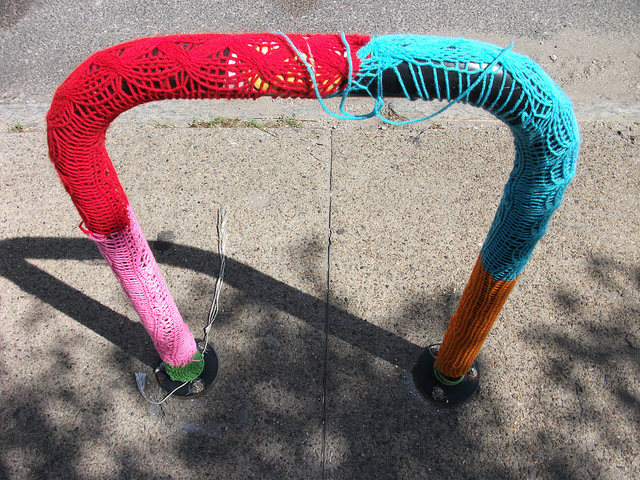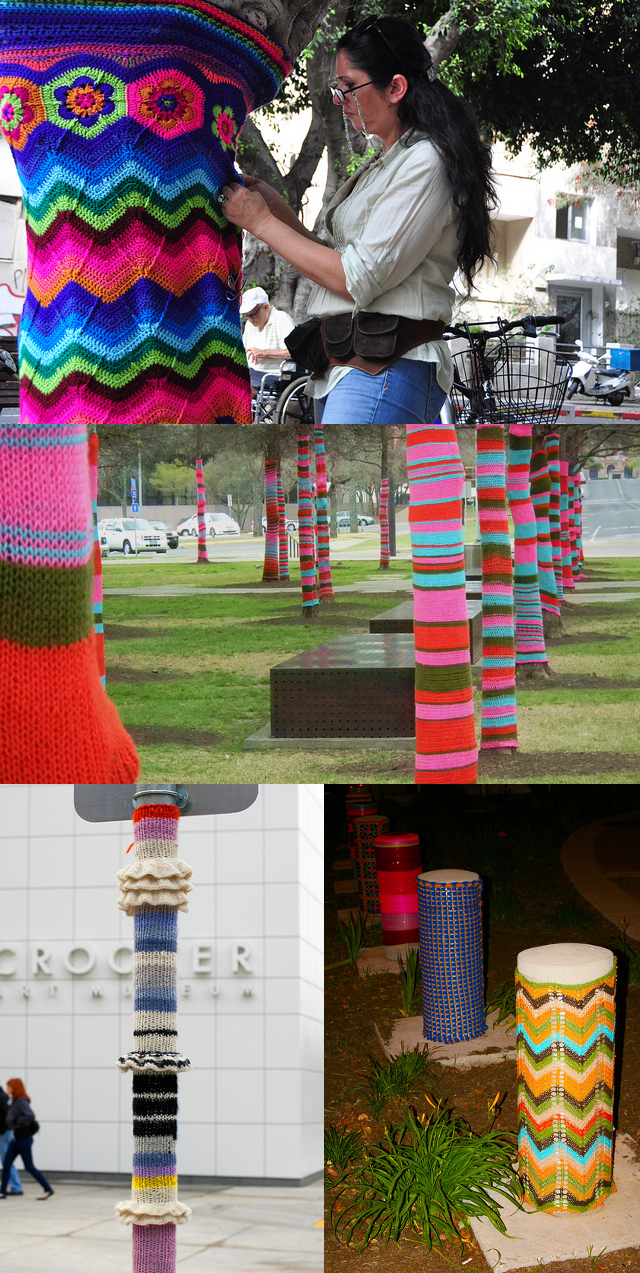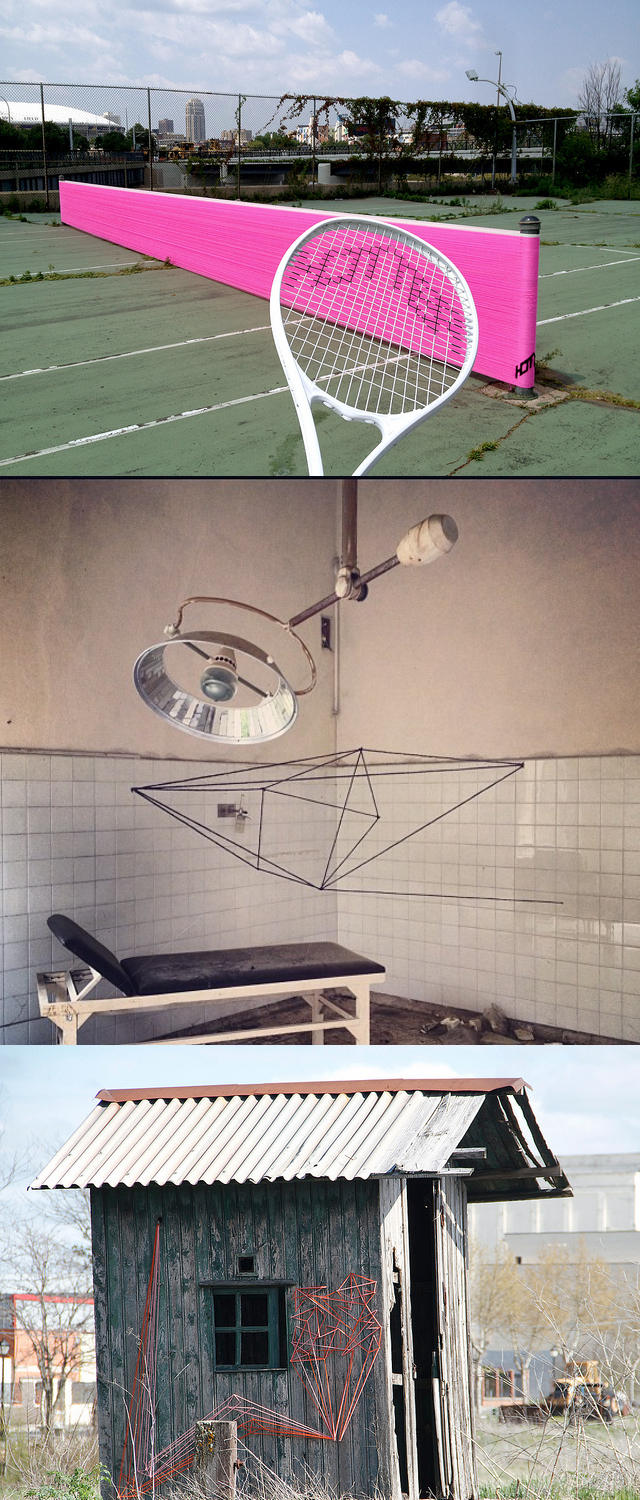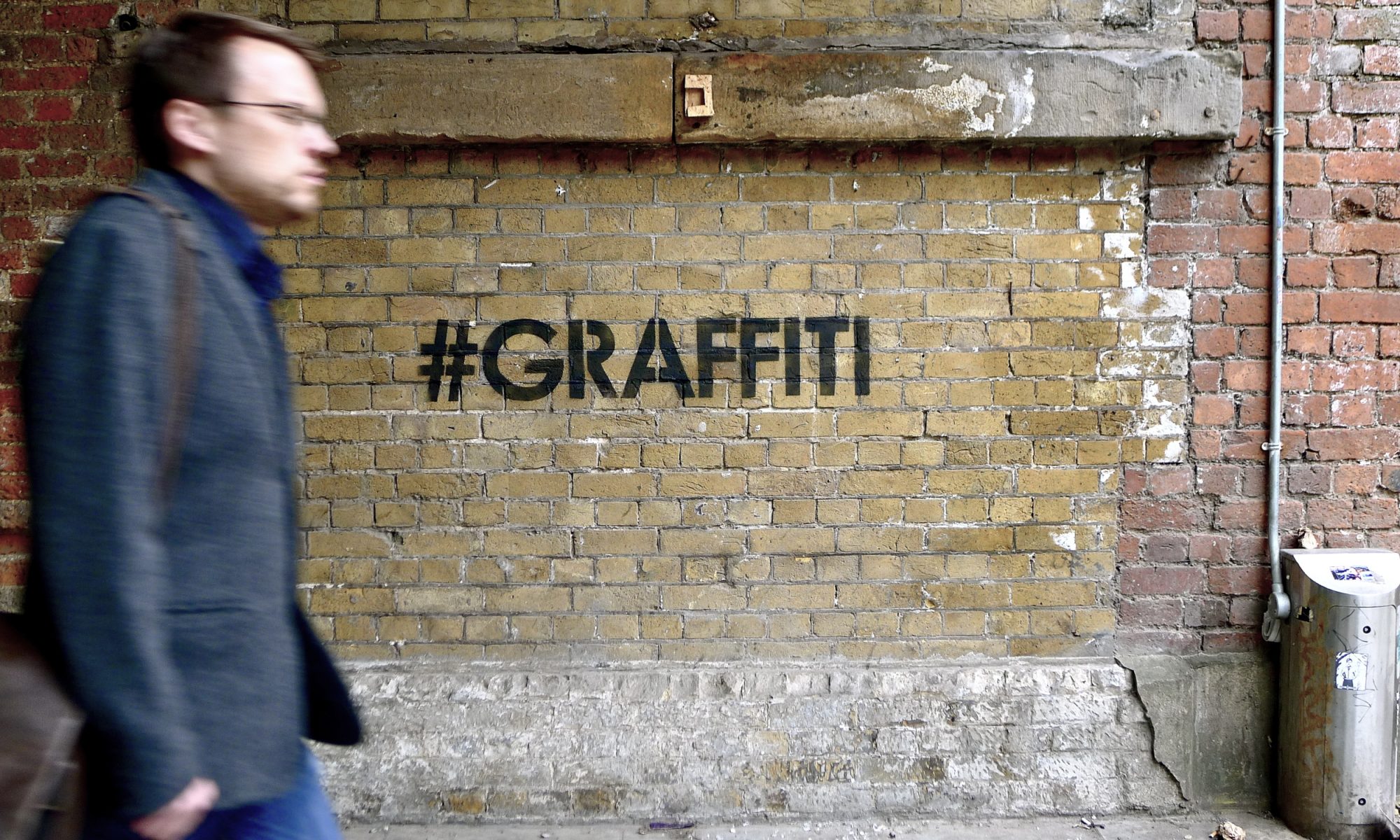
Conrad Benner of Streets Dept. noted that yarn bombing is probably one of the most verbally attacked forms of street art and in my experience, he’s right. Actually, most of the hate I hear comes from other street artists. Why? As Jason Eppink puts it, “Yarn bombing exemplifies the ‘do it for the photo’ method of street art. There’s a disingenuousness. … It’s bright and colorful for a day, then it looks gross and someone else has to clean it up.” And it’s no beautiful decay, like the withering of wheatpastes or chipping paint. Personally, I always feel a bit uncomfortable with the awareness that someone put in a disproportionate amount of hours to make such a short-lived mess. Yarn bombers, why not document your pieces a week after you put them up (or the places where they had formerly been) and tell us if this was made for the audience that would see it physically?
There is a family-friendly quality to yarn bombing that allows these crafters to feel comfortable putting up work in middle of the day in front of observers. It is relatively low-risk. I assume that the association of this with “street art” and “graffiti” has to be frustrating for painters, writers, wheatpasters and sticker artists who wait until the wee hours of the morning to put up work because they risk being charged with a felony. Let’s repeat that: felony. There is a hierarchy of risk in the world of vandalism and street art is already understood as less risky then straight graffiti. Below both of these would be stickering which despite being regarded as toothless in some circles, can still have you arrested in certain cities. Yarn bombing would probably rank so low in terms of risk that it would fall on a separate page. Illegality does not make a work better or worse (though admittedly the risk factor definitely adds interest), but if the playing fields are not equal for yarn bombers and street artists why should they be classified as one and the same?
Here’s the contradiction: I’ve seen yarn used as a street art medium in ways that I thought were extremely imaginative and visually interesting. Works by Moneyless, Spidertag, and HotTea aren’t any less temporary, any less susceptible to decay (perhaps even more so), or any less legally benign than typical yarn bombing. What makes them different for me? The fact that these artists’ works could be identified in a lineup. Part of what has street artists and street art appreciators writing off the genre completely, as Conrad initially asked, is not the medium but the lack of creativity. A plethora of yarn bombers would like their work to be seen as unique or distinct, as any artist would, but are they putting in the effort in to earn that? Let’s look at a few examples of what most people envision when they envision yarn bombing

And here are the yarn-wielding street artists previously named.

Point made or need we look further?
Olek had always been one of these artists whom I’d come across frequently but always skimmed over with a sort of neutral reaction, like “That might be cool if yarn bombing were something that was cool.” Then the other day Jonathan LeVine Gallery sent me this video compilation of Olek’s work over the past year. Through the entire video, I was trying to reconcile why I still hate yarn bombing but why Olek was starting to feel like an exception. The reason is that she has moved beyond many of the drawbacks of typical yarn bombing. She has a relatively large body of work and it is not built solely on sweatering trees in different cities. The sheer size of some of her pieces are enough to make even biased observers do a double-take. Olek’s work does not last longer or decay prettier, but like Hot Tea, Moneyless and Spidertag, her personal style is identifiable. Unlike usual yarn bombs which don’t seem to be communicating anything specific, Olek’s work is often blatantly addressing the greater art community. Naturally, I don’t like everything but the versatility in Olek’s work proves that there is colossal room for creativity in this genre.
Yarn bombers, I encourage you to point out any shortcomings in this post, but more importantly I challenge you to be more creative.
Photos by Alona Arobas, amy_b, Hot + Tea, jimmyhere, Moneyless, Robert Couse-Baker, Spidertag and StreetsDept
